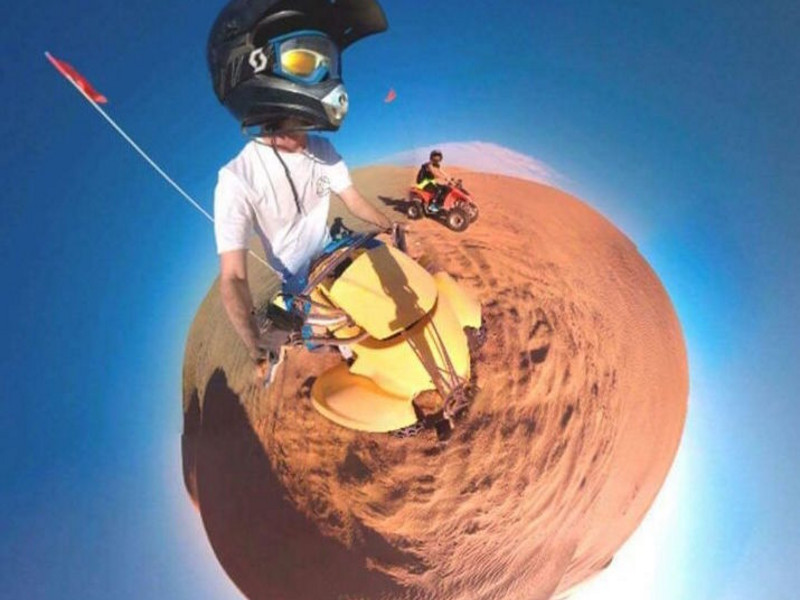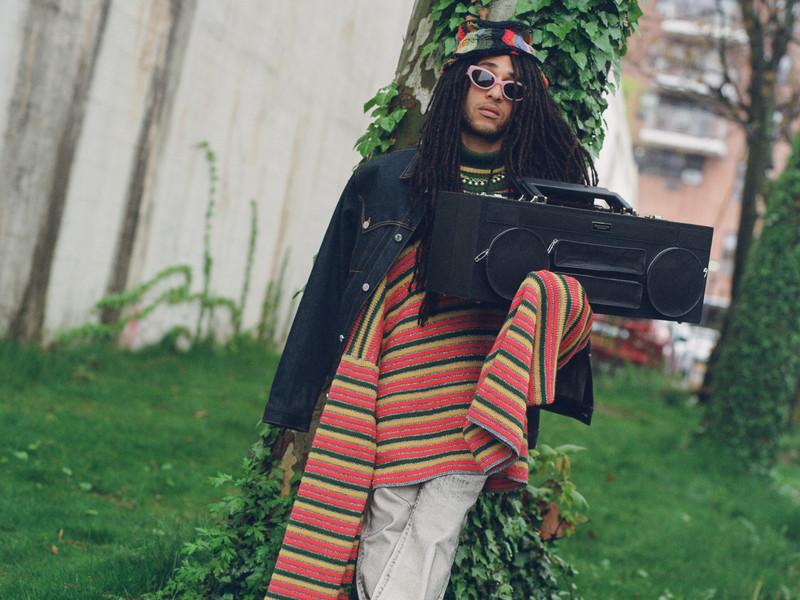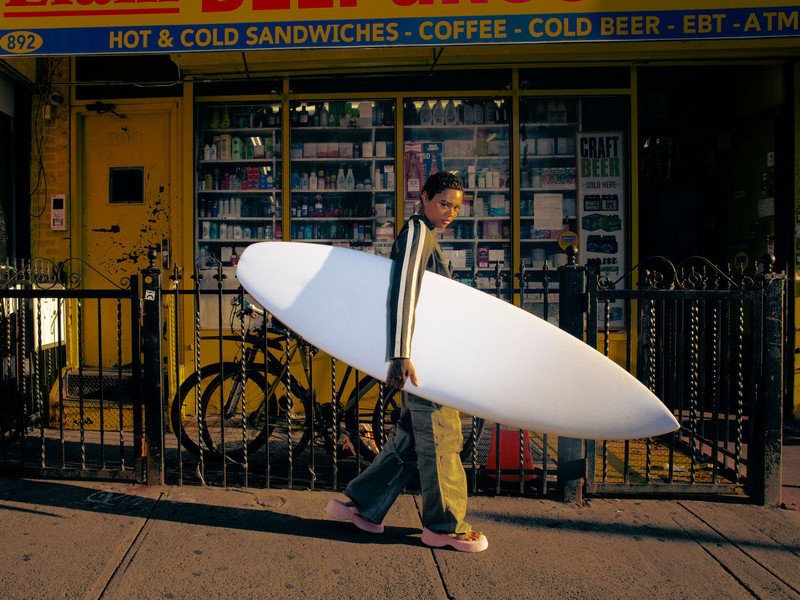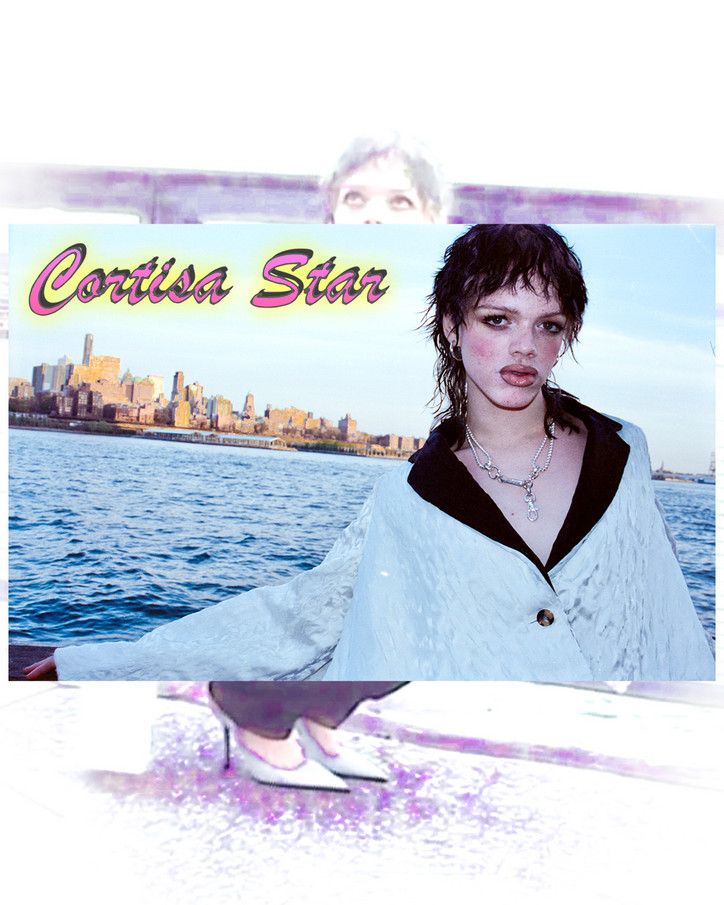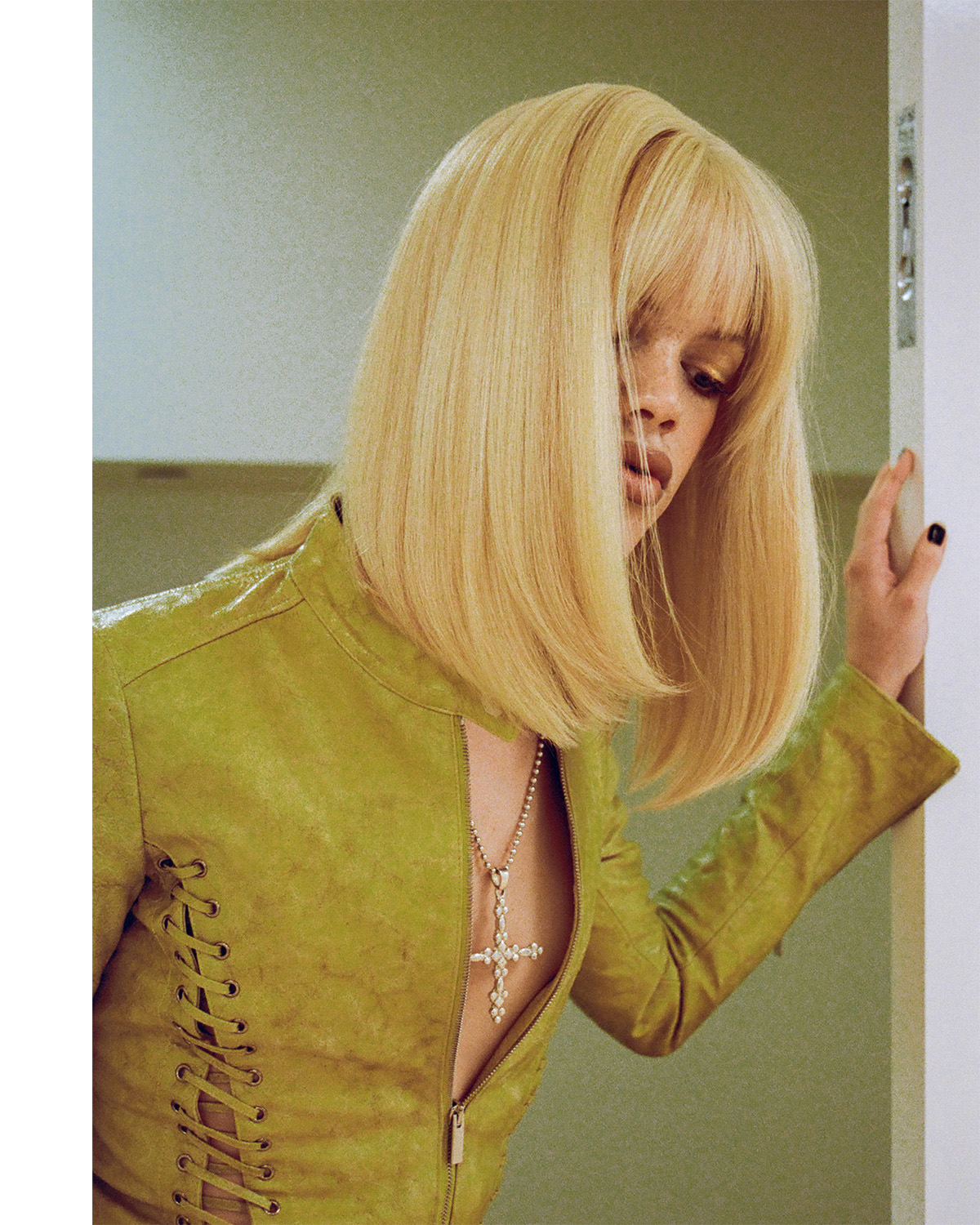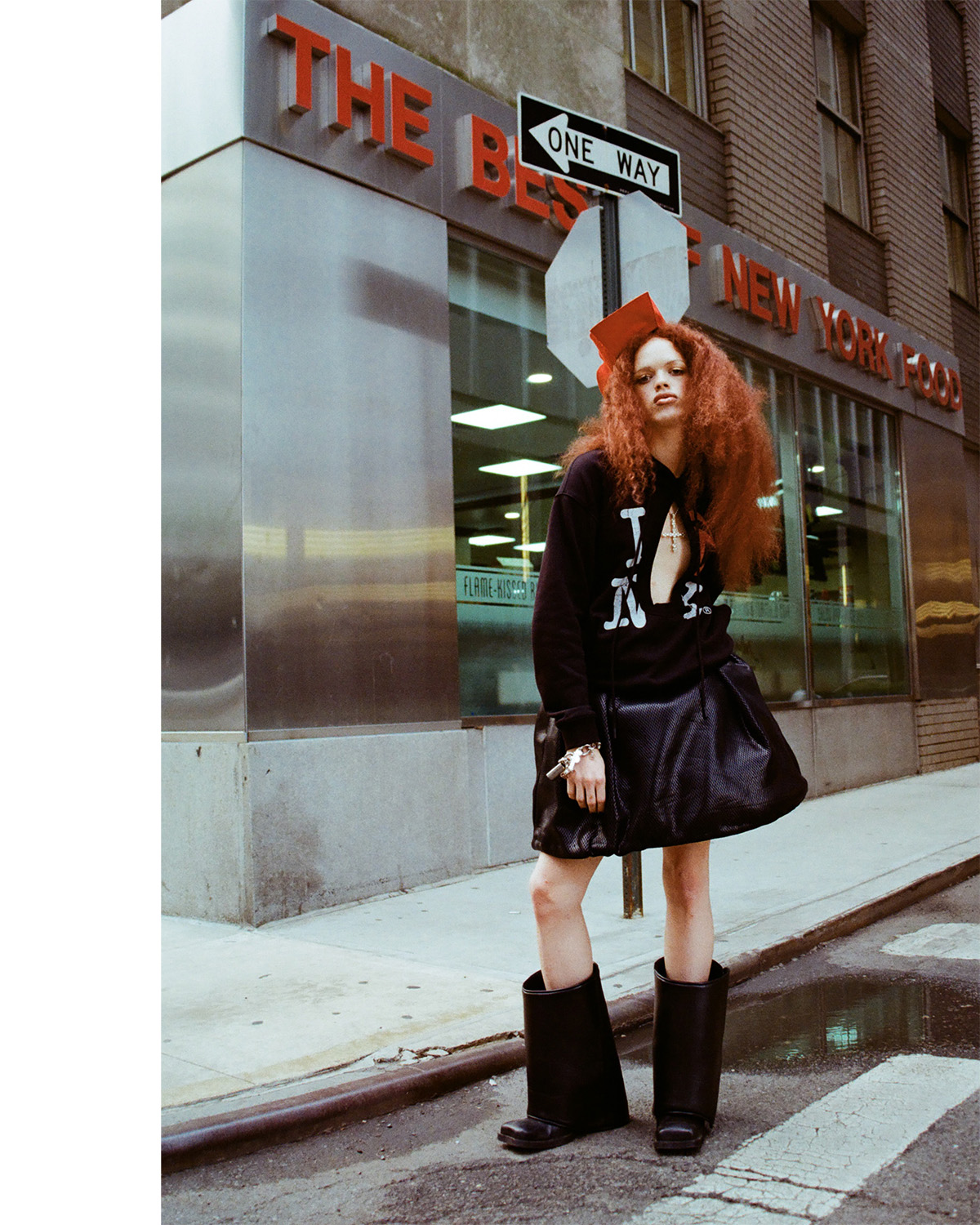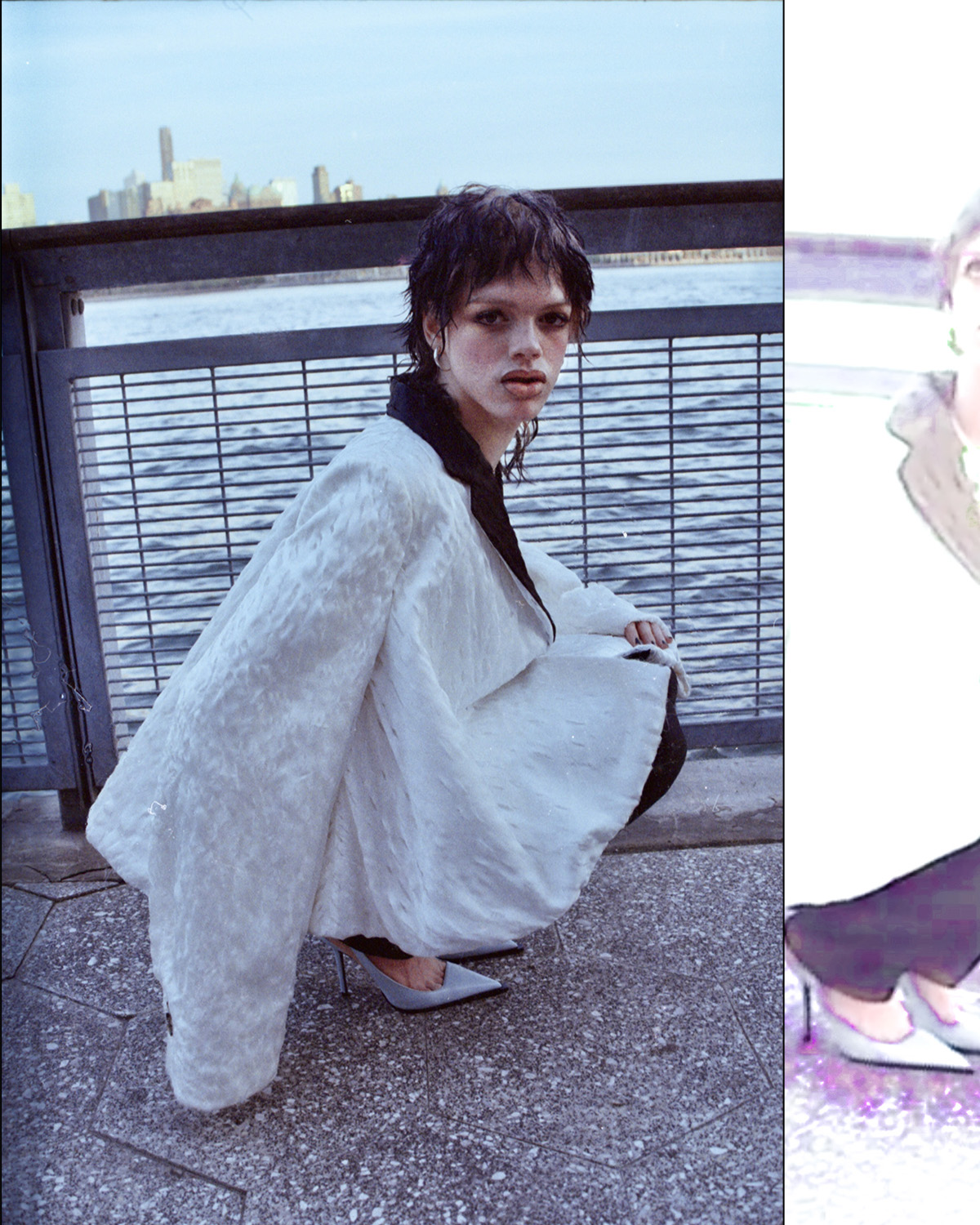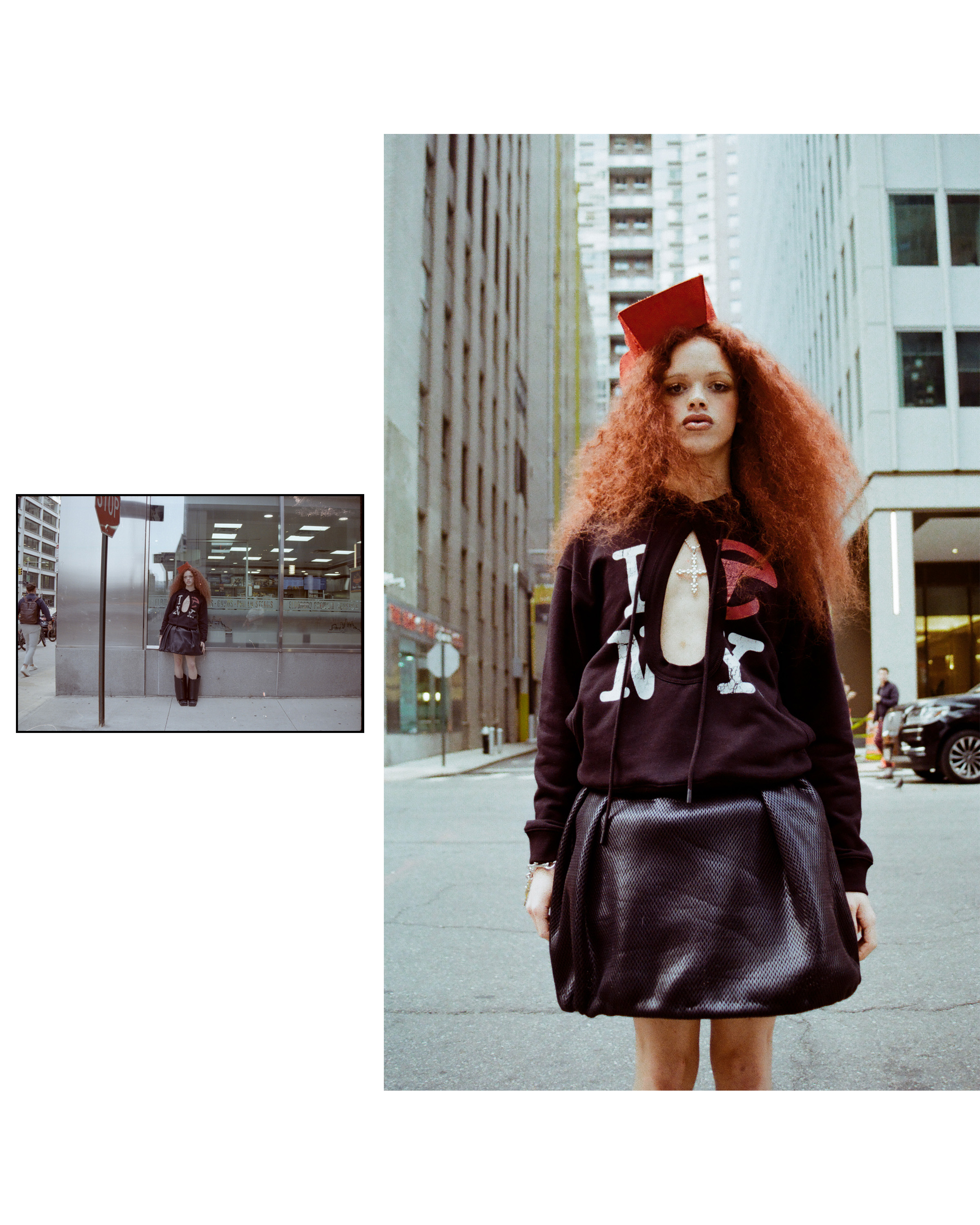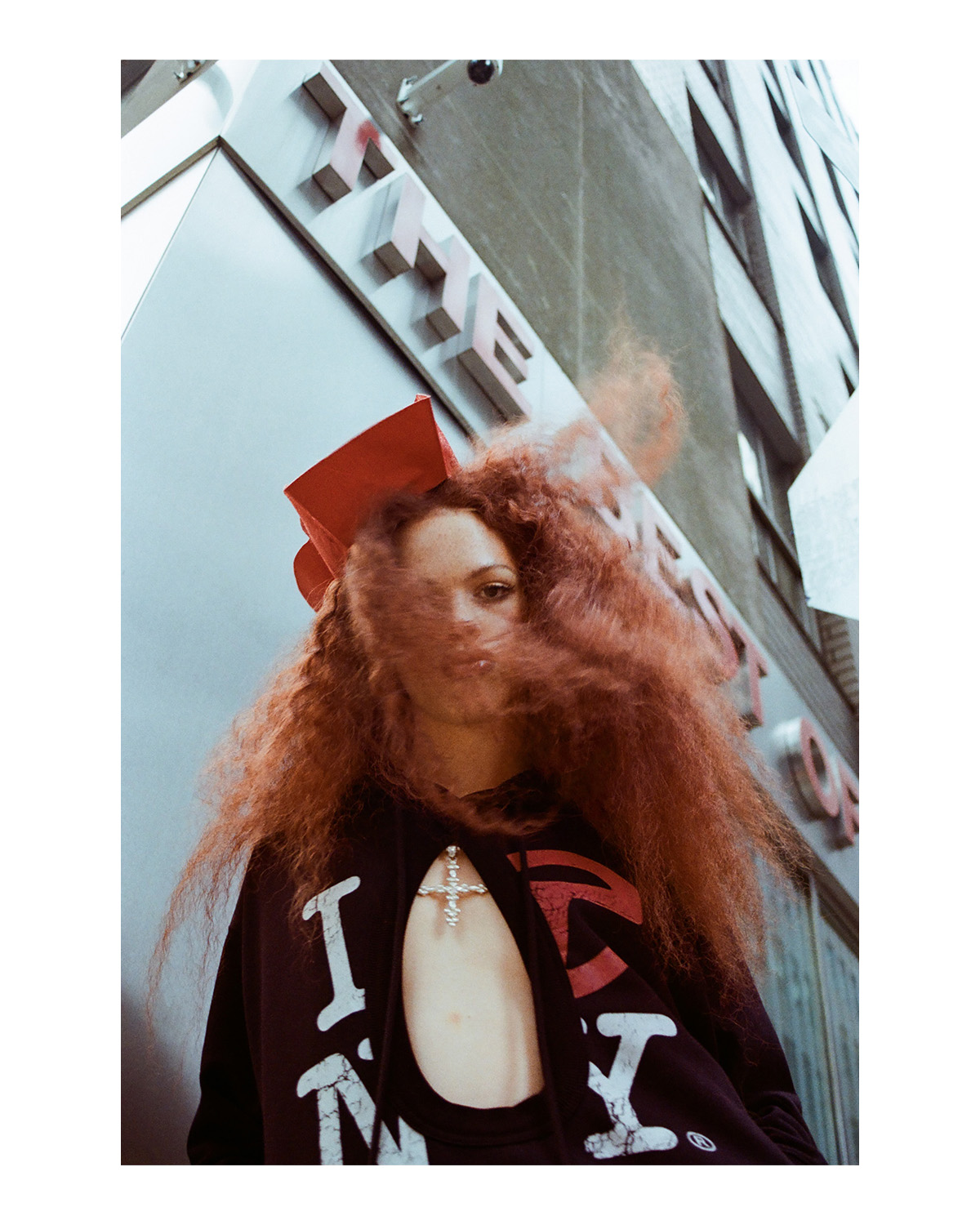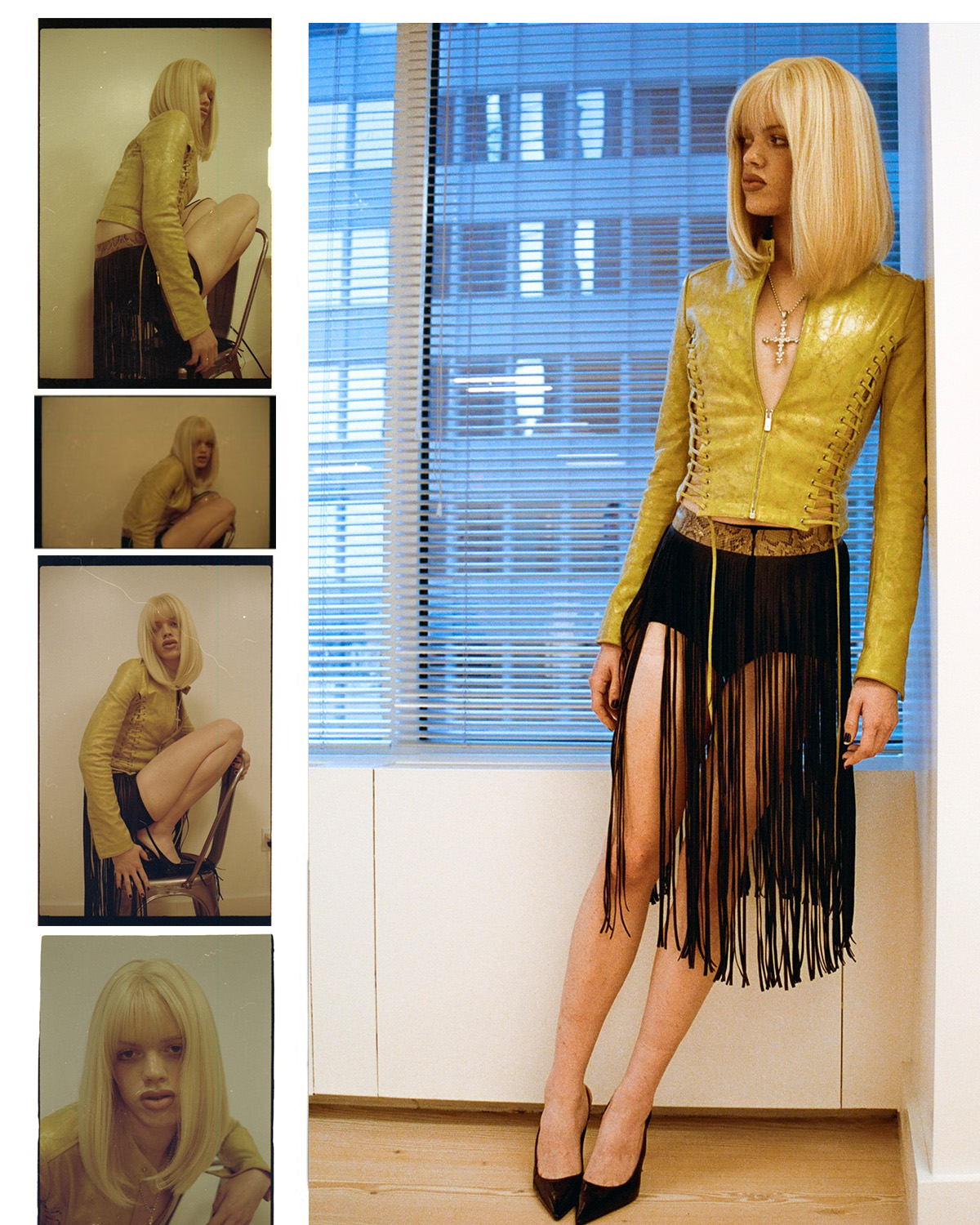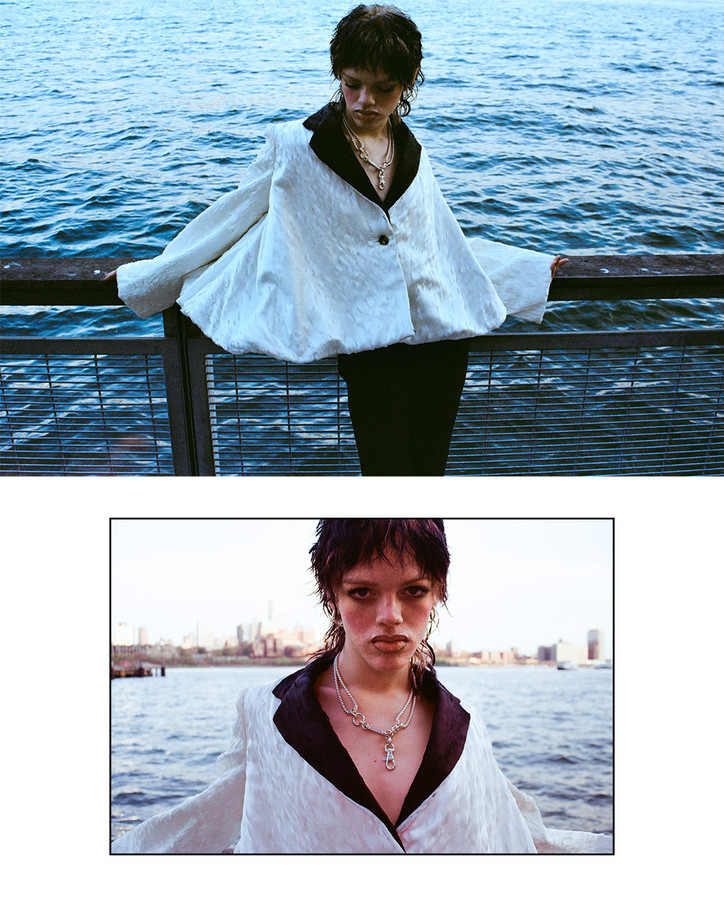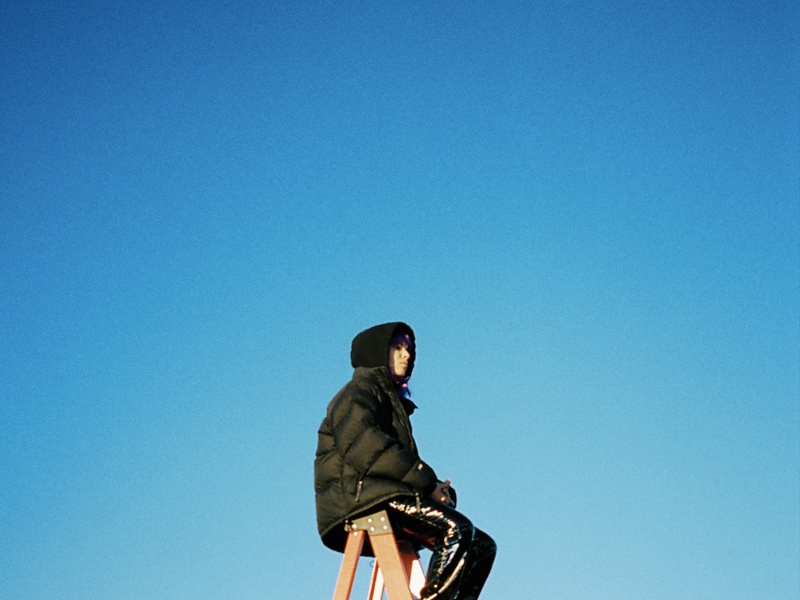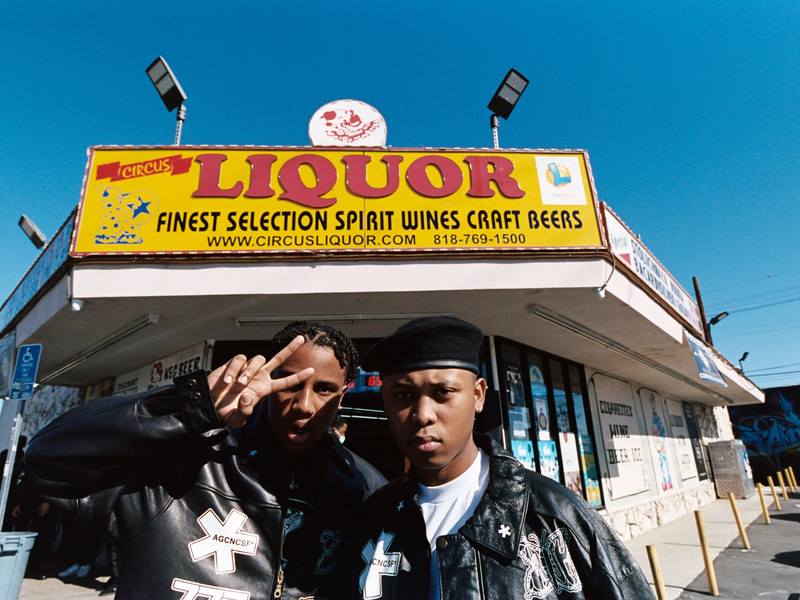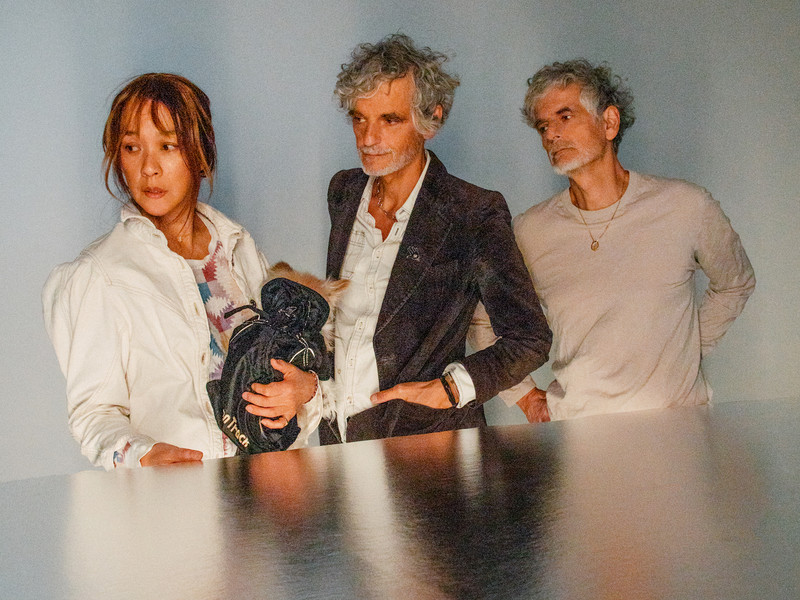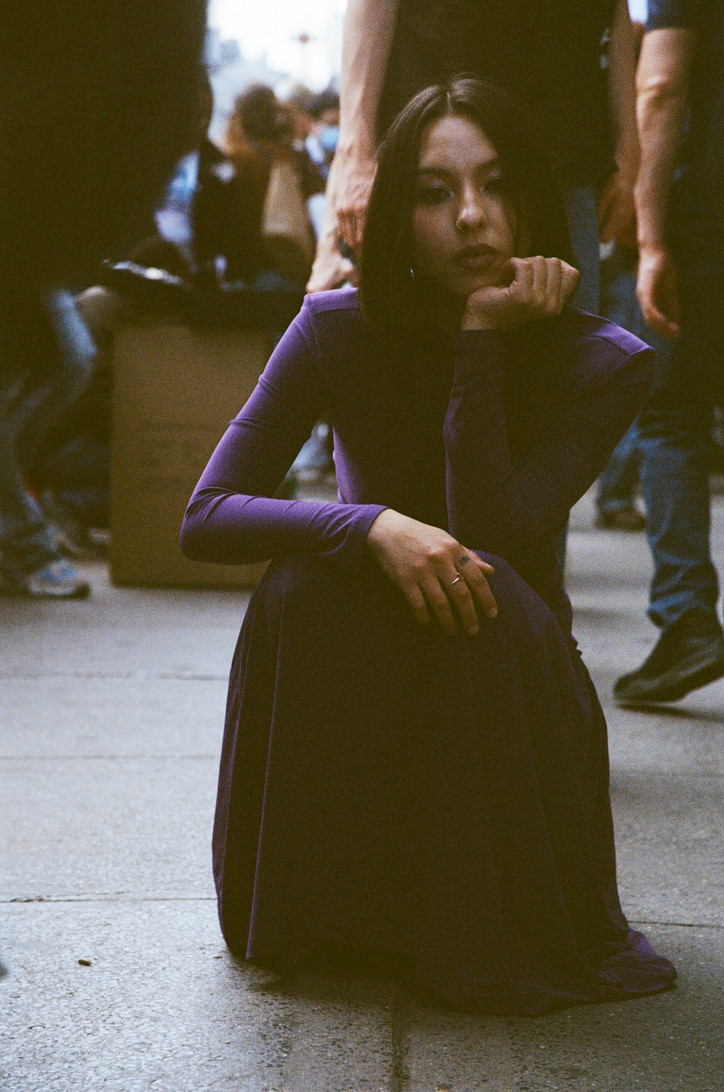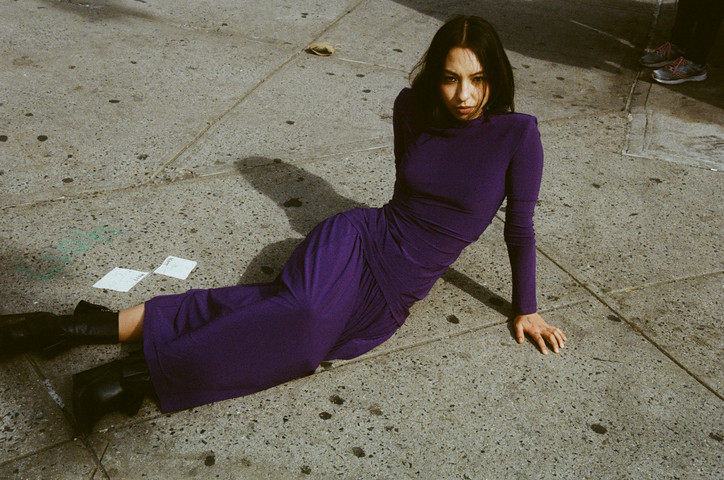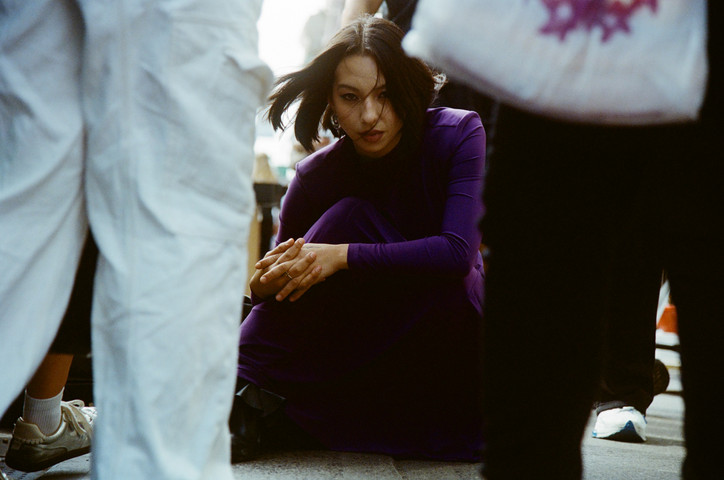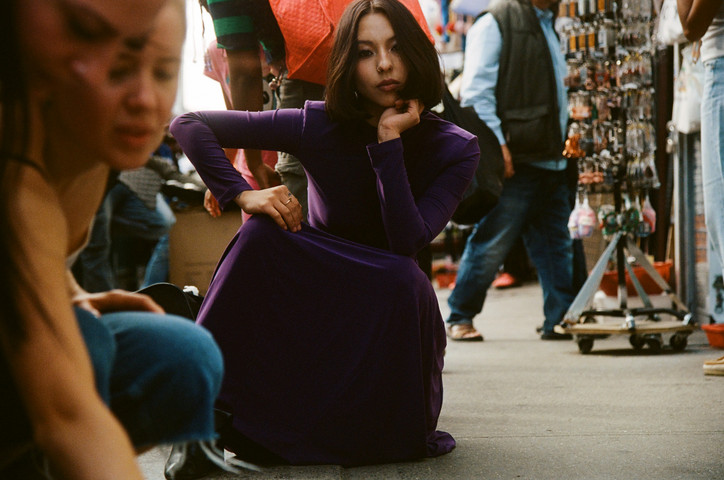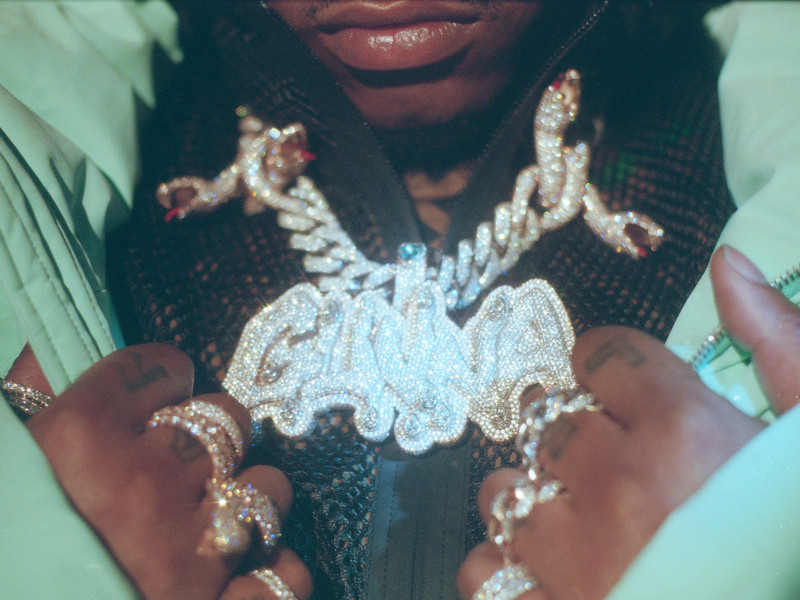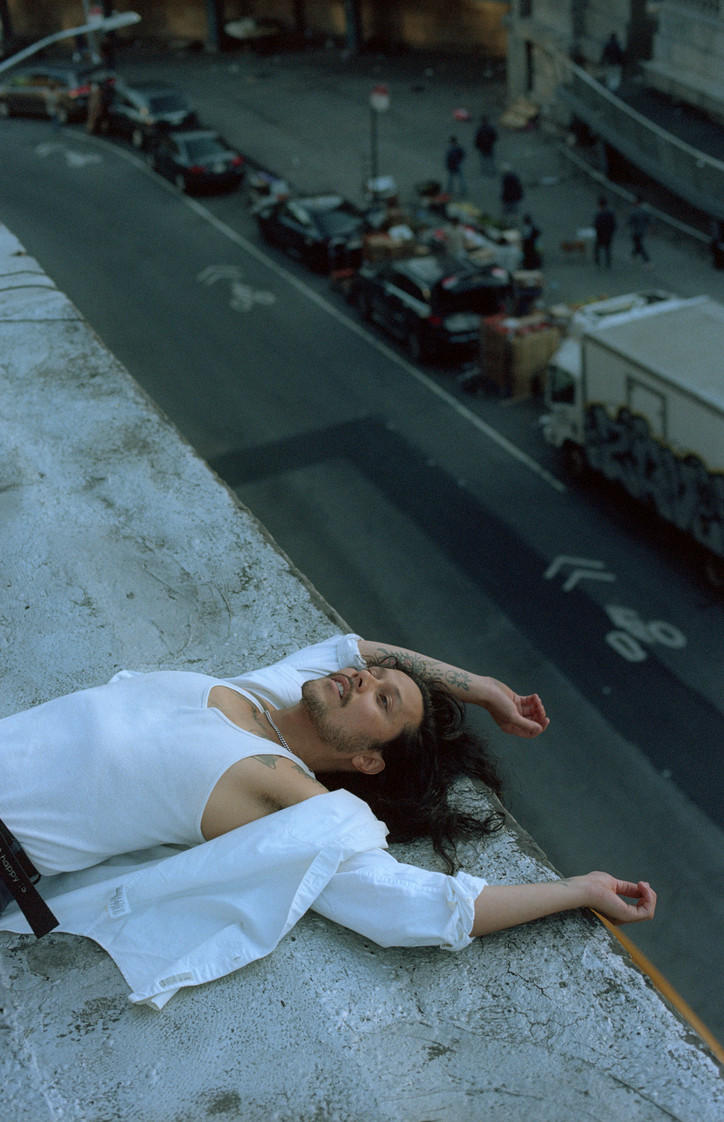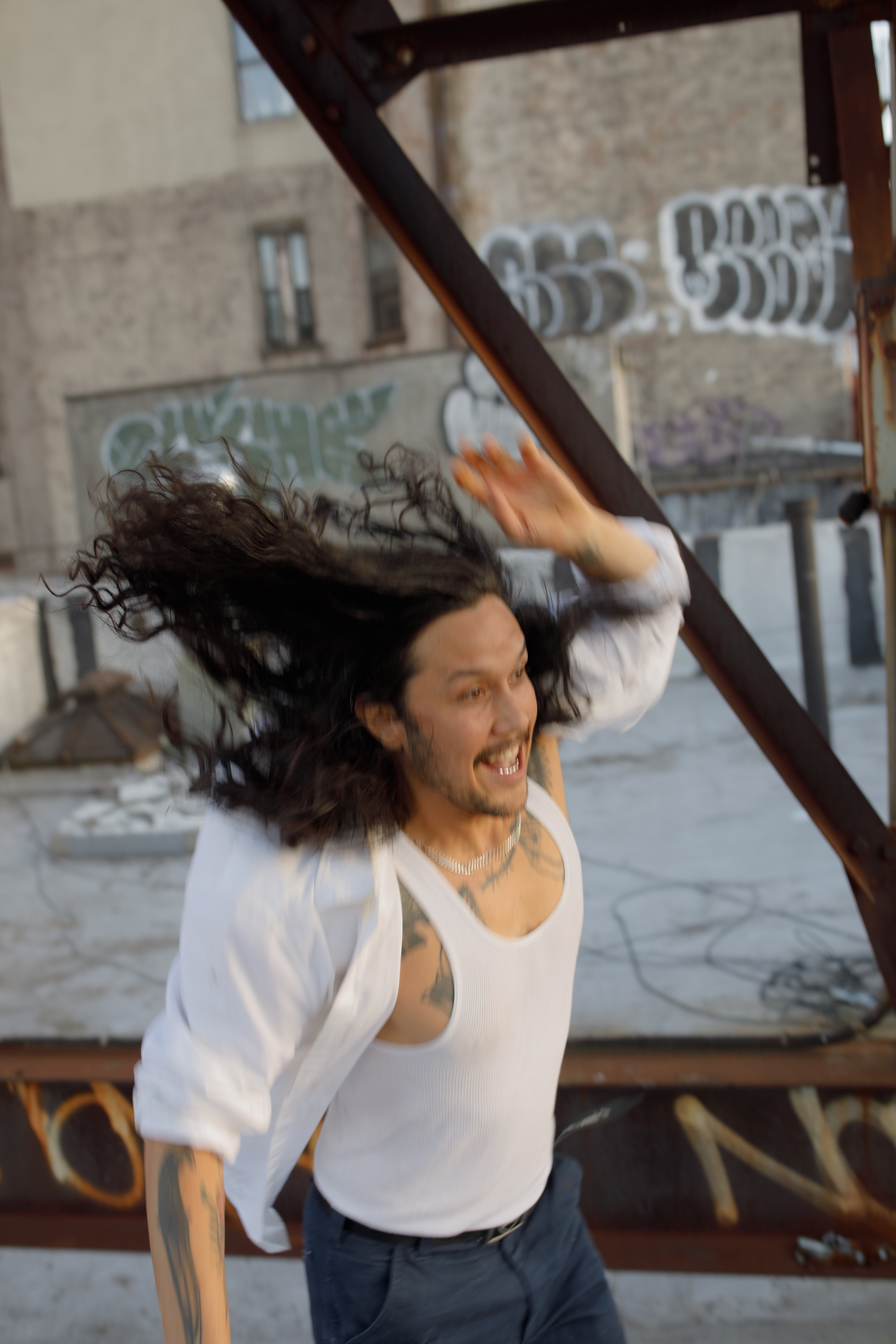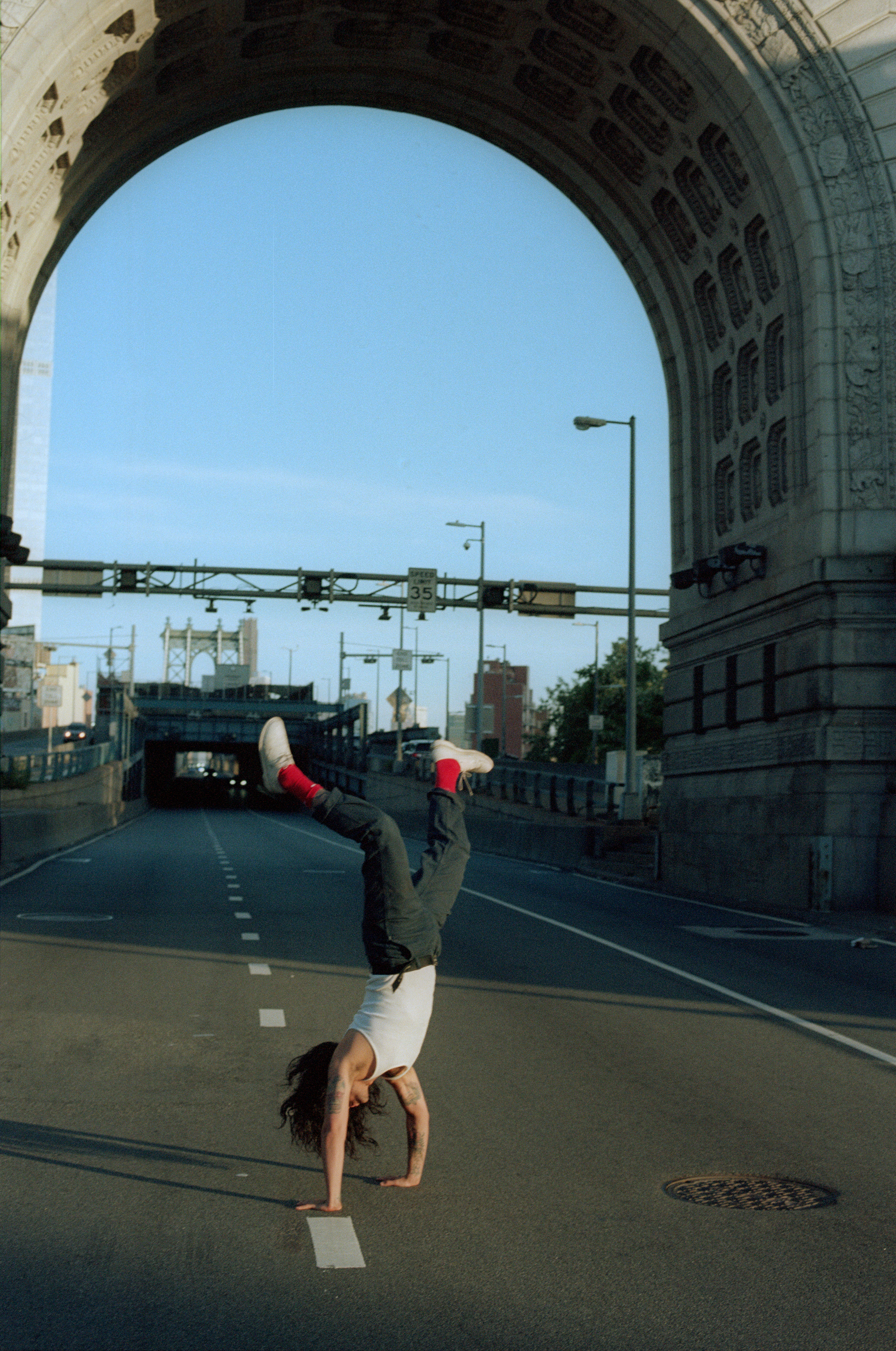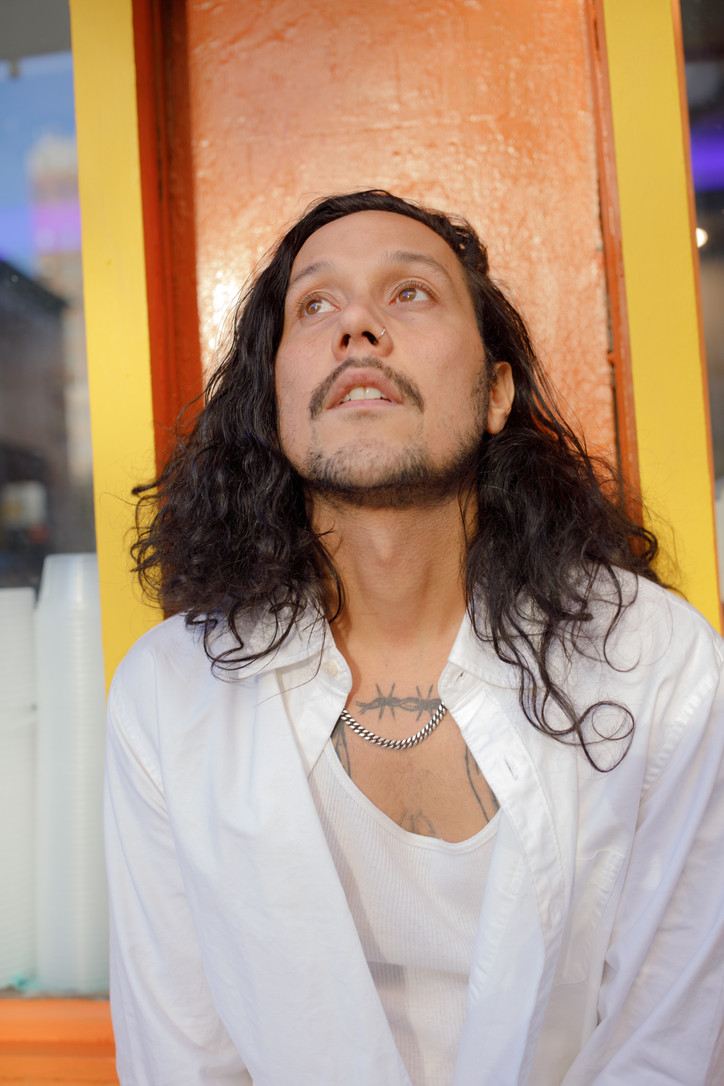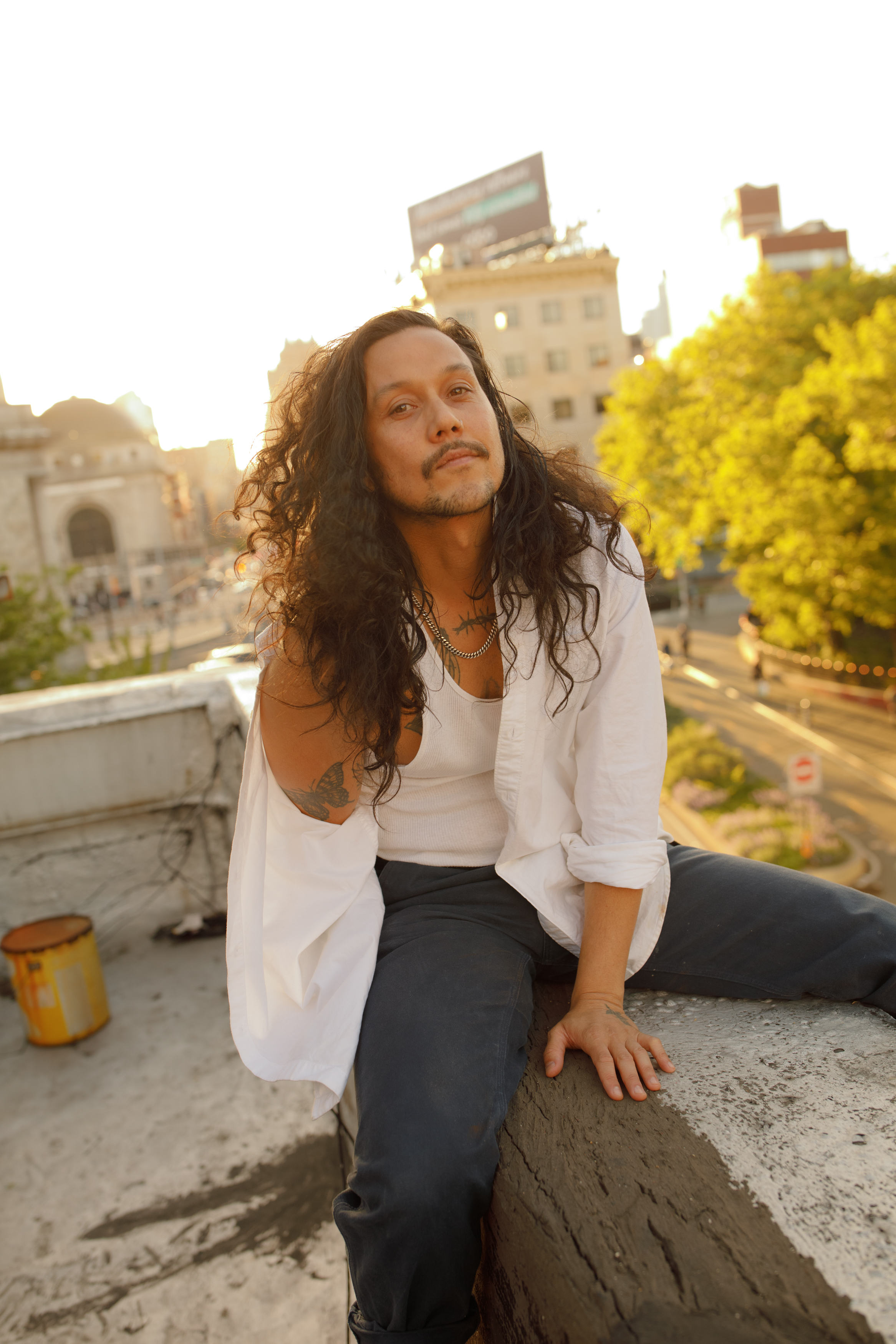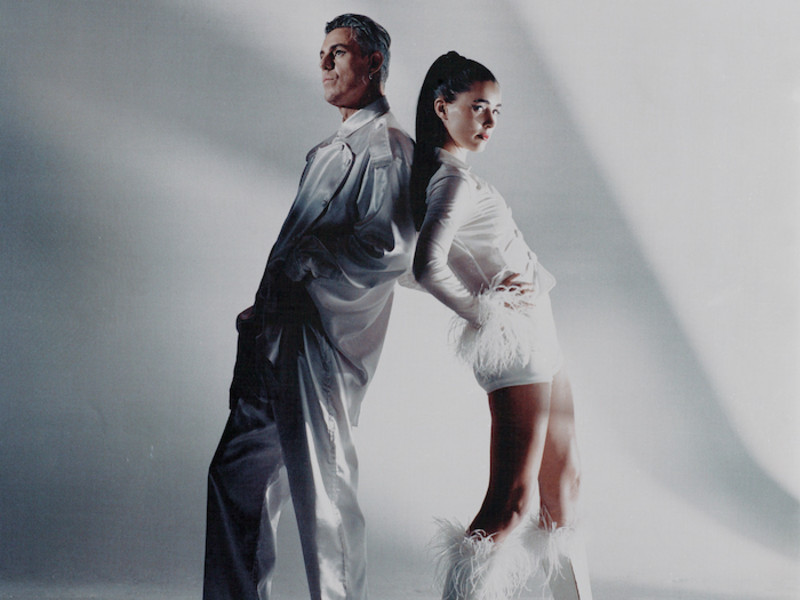Master of Multiplicity
Alex’s work habitually explores masculinity; and all of its trappings, and failings. Though Miami Memory is different from his two previous records. In fact, this record is, in part, dedicated to Jemima Kirke—the artist’s partner, and a key source of inspiration. At this stage in his career, Alex is ready to talk about other things, beyond tropes, and characters. Rather than just satirising fragile men, he uplifts women; and contextualises the relationships between these men, and the women they hurt.
When I galloped over to introduce myself, Alex is receiving the full treatment: blue eyeshadow, rosy cheeks, red lips. Even though makeup, which in itself in non gendered—despite advertisers aggressively targeting women at the turn of the early 20th century—cosmetics only been re-normalised for men in very recent history. But it is typically only seen on the faces of ‘feminine’, typically queer men.
Perhaps, to some, Alex Cameron, a man who doesn’t regularly sport peacocking cosmetics isn’t that revolutionary; as history entails the likes of David Bowie, Louis XIV, Tutenkhamen. However, social progress is not without backlash. As outdated gender expectations continue to dissolve, zealots are emboldened to reinforce rigid ideals through violent means—bleeding into racial, and sexual politics. So when a man is courageous enough to step outside of his assigned role, it is a revolutionary act.
I watch as Alex move gracefully, then awkwardly, teetering on both. There is something deeply poetic about his gestures. Shot after shot, Alex Cameron subverts what it means to be a man’s man in a man’s world. More than music, the man behind Miami Memory is a master of multiplicity.
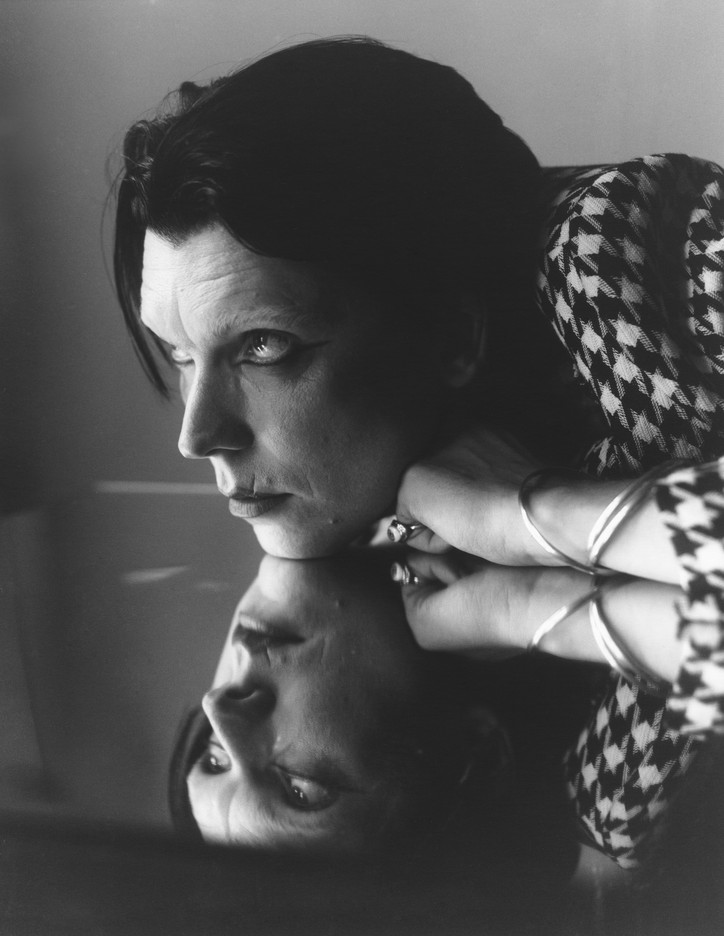

Jacket, pants and shoes by GUCCI
What’s your earliest Miami memory?
Miami is… let me think about it, as there are a lot of memories. Probably like riding a tandem bike along Miami beach board. I just had like so many beautiful times though. My parents have come, probably two, or three times a year.
And what drew you to Miami?
My girlfriend: Jemima. It was a holiday, or a destination, you know, when she wants to get out of the house. She's lived in Miami. So we spent a couple of days on the beach, and it just felt right to me. I don't know—I thought I was weird, but then I took Roy [Molloy], my business partner. He comes from Australia, as well. He loves it, too. So maybe that has something to do with Australia; growing up on beaches, and just being in a familiar territory, you know?
Did you have a musical upbringing? If so, how did that shape your artistry in your current stage?
Yeah. I wasn't necessarily in a musical family, but my mum really encouraged me to learn instruments. And told me a lot about rock and roll. When she was a kid, she listened to a lot of, you know, classics—now they’re considered classic rock and roll songwriters, and she showed me the ropes.
What did you learn to play?
I learned to play the snare drum in a marching band, and I also learned the bagpipes. I have a Scottish heritage so—
Can you still play the bagpipes?
I can play one song on it. I can play ‘Flower of Scotland’ if I practiced recording.

Suspenders by GUCCI, denim by MARTINE ROSE
Where do you go to be alone?
I go to the movies. The last place I was really truly alone was—in terms of socially, I did a long walk down Rockaway Beach about eight in the evening when it was pretty empty, and it was raining; and I just walked for like two hours. And that's how I rehearsed for the tour. I just listened to the songs, and sang along to them. And that was my rehearsal. It was really a nice thing to do. It also steered me away from panicking.
Do you believe in magic?
You have to. I think if you're writing songs, performing... I know that I would lose interest if I didn't have faith that that was some kind of spiritual energy involved in the whole process. You know, honestly, I barely feel responsible for the songs. I'm more of a conduit for it all—it already existed. It's always existed.
I know that you’ve been telling stories since you were a child, and consider yourself a storyteller; what stories have inspired you?
There was this story that might have been called The Inch Warrior, but let me double check that there.
Alex pauses to Google the story on his iPhone
Well, that children's book [is in] Mandarin—cause I'm part Chinese. I had a lot of Chinese children's books, but they were in English, and there was one about a little inch warrior. He was an inch tall, an extremely aggressive gentleman, but he had a needle for a knife. He was always told by the army to go away. The moral of the story was that one day there was a monster that could only be defeated because he went inside the belly, and poked him with the needle.
And there was another one about a gentleman who was traveling the world, essentially the countryside. And I think he starts with a fly on a string, and he trades it for some mandarin, and then he just keeps trading, keeps trading, keeps trading until he has resources to live. But they were little children's stories that I remember that are from China.
When you critique, or satirise, where do you begin the thought; and how do you translate them into songs?
I think it generally comes from a conversation that I'm having, or ones that I'm overhearing. It's normally one sentence, one lyric, one idea, that kind of triggers this energy in my mind. There's a path I can follow here, you know? Um, yeah, it's all from conversations with people.
How do you heal a broken heart?
There's a shortcut: to leave town. That's a shortcut. Just leave town. I don't know if that is a long term solution. It definitely helps in the interim between heartbreaking, and recovery. I think you'd go out there, and you try to get broken again. Break twice. It's already broken. It's broken. I think that taking some time to yourself before really rigorously throwing yourself out there socially, and enjoying being independent in myself... fall off from your phone.
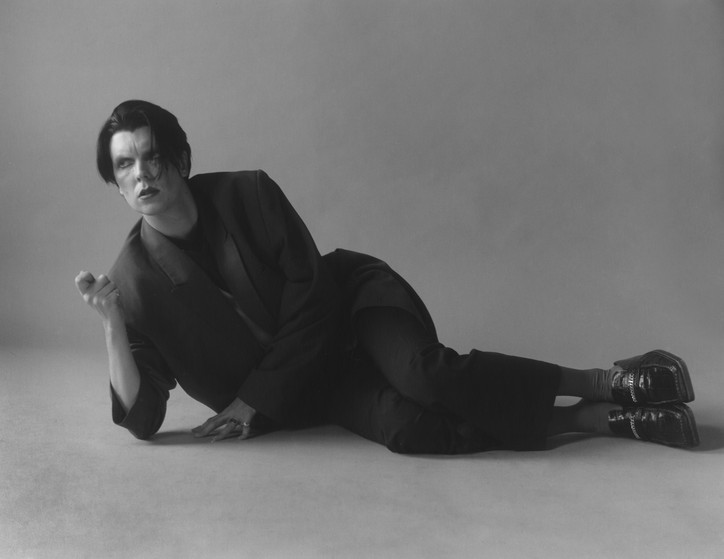
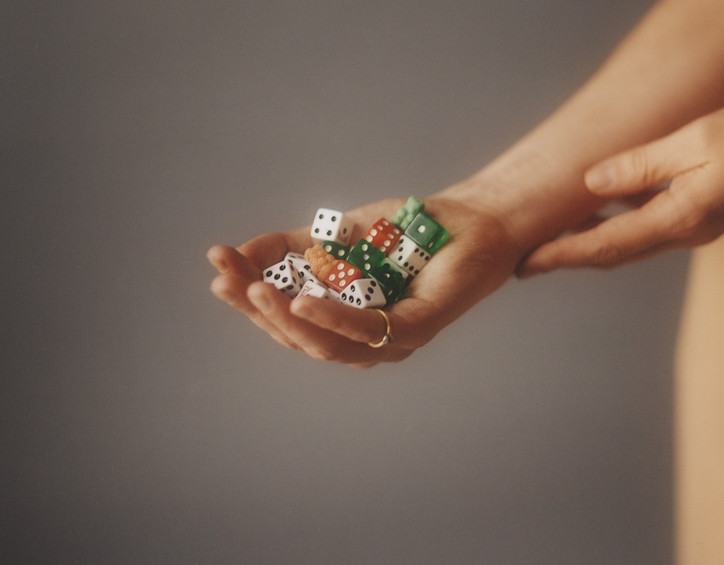
Shirt, jacket, pants and shoes by MARTINE ROSE
When was the last time you cried?
Last time I cried… probably watching a movie on a plane, but maybe—probably just on tour feeling miserable in a hotel room somewhere in Europe, just leaning over the bathroom sink. I cry. I cry. I do micro cries. I just contort my face, and one tear comes out, and I'm done. I move on. Takes about three seconds. It's a micro cry. But I always want to do more. I just can’t.
How has your life changed since the release of your first record?
I can afford to pay rent, and I completely moved countries. I live in America now; I work in America. I travel all around, but I'm a resident of Australia. I get to work—that's how my life has changed. I get to work. I work as much as the business needs us to. I've already done over a hundred shows this year, and we've still got another 30 to go. It's like it's good work.
What’s your favourite part?
Being on stage is really, really fun. Right now with the band we’ve got, and the tours we’re doing, we just sound really good; feels really good. Recording a song is like—you’re in a studio. It’s a fantasy. It's really amazing, and magical. I get to do something not many people get to do. And then getting on for the tour, and just relaxing. It’s the best job in the world, but it has its challenges.
What is the most Australian thing about you?
I still really religiously watch sports. I can watch any sport, and just try to calm down at the sport, and I just follow the rules. It’s like a system.
What’s your favourite sport to watch?
Right now it’s basketball; any type of basketball. It’s so easy to watch over here in America with the NBA. I tend to like the Boston Celtics. But I also just follow teams that have Australians on them. I love it. I was really a fan. I'm a big fan of Elizabeth Cambage from Australia. She plays in the WNBA. She's awesome.
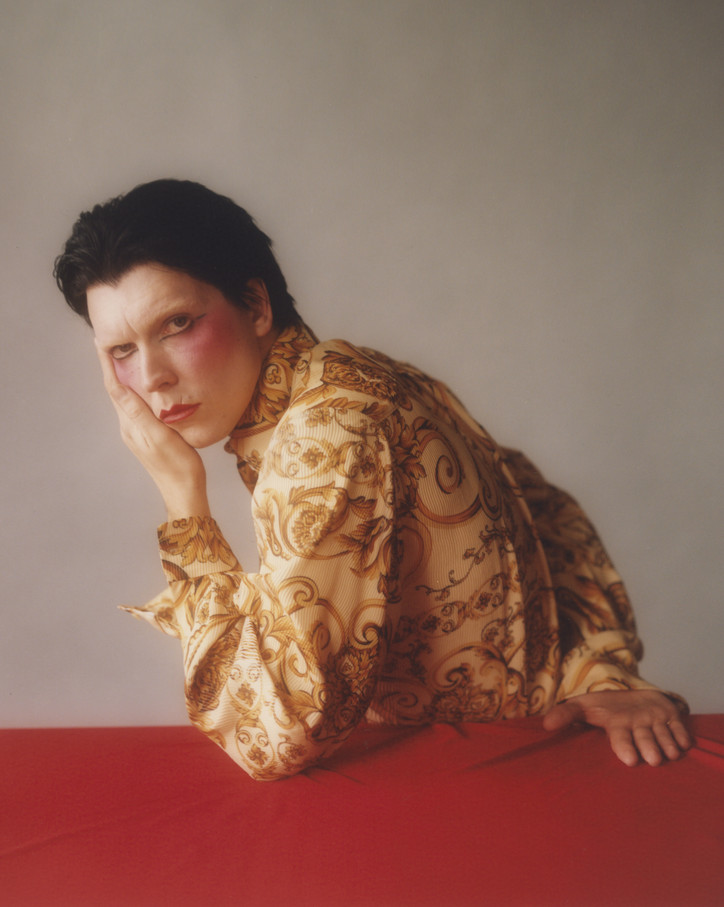
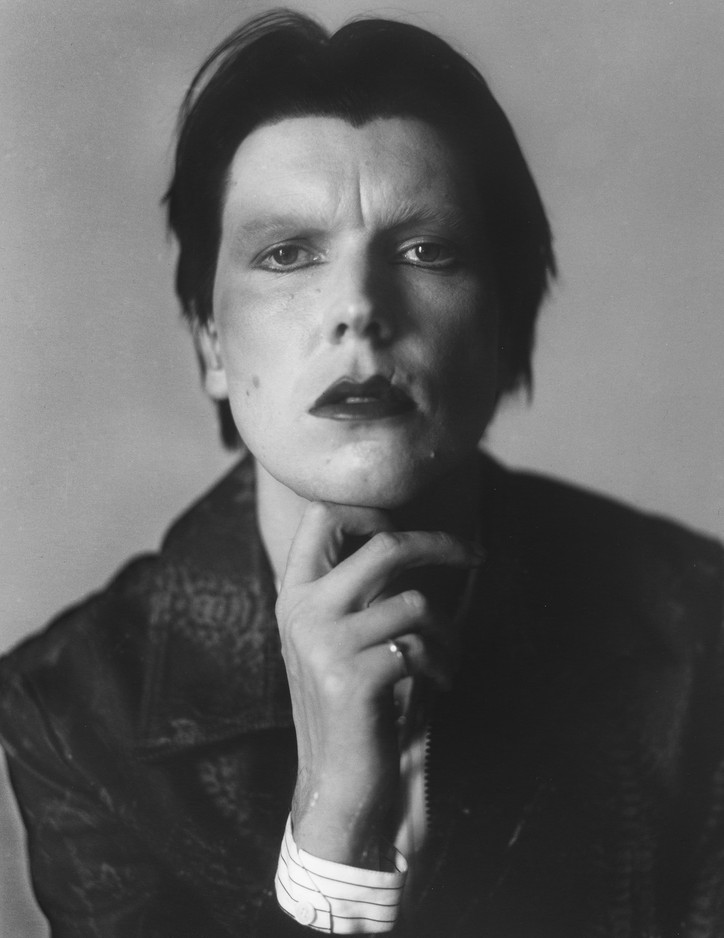
Shirt by MARTINE ROSE; shirt and jacket by CELINE

